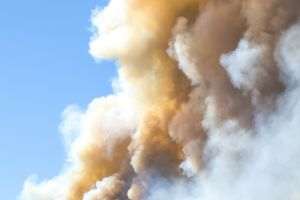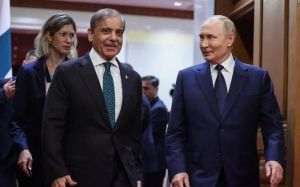Iranian President Ebrahim Raisi, who died on Sunday after a helicopter crashed in northwestern Iran, is to be buried today in the city of Tabriz, according to information provided yesterday by Iran's Tasnim news agency, affiliated to the Islamic Revolutionary Guard Corps. Along with Raisi, Foreign Minister Hossein Amir-Abdollahian and several other officials died in the tragic plane crash. Iran's official media claim the helicopter crashed due to weather conditions while en route to Tabriz after Raisi paid a visit to the border with Azerbaijan.
Iran's Supreme Leader Ayatollah Ali Khamenei issued an official statement announcing five days of public mourning for President Raisi.
Ebrahim Raisi was a hardline cleric close to Iran's supreme leader, Ayatollah Ali Khamenei. Raisi, a 63-year-old former chief justice, came to power in a landslide victory after knocking out many moderate and reformist challengers. Ebrahim Raisi was born in 1960 in Mashhad, Iran's second largest city and home to the country's holiest Shia Muslim shrine. Raisi was a seminary student in the city of Qom, and while a student he participated in protests against the Western-backed shah, which was eventually overthrown in 1979 following the Islamic revolution led by Ayatollah Ruhollah Khomeini. After the revolution, he joined the judiciary and served as a prosecutor in several cities while being close to Ayatollah Khamenei, who became Iran's president in 1981. Raisi's term as president was dominated by anti-government protests that included Iran in 2022. The former president has faced several accusations from citizens and human rights activists over his alleged role in mass executions of political prisoners in the 1980s.
After Sunday's tragedy, the government in Tehran appointed Deputy Foreign Minister Ali Bagheri Kani as interim foreign minister, and First Vice President Mohammad Mokhber will take over as interim president for 50 days, according to the Iranian Constitution.
Mokhber told state television that he was following President Raisi's path in "carrying out his assigned duties without any interruption."
Mohammad Mokhber, 68, was elected first vice president after the 2021 election that brought Ebrahim Raisi to power, and is close to Ayatollah Ali Khamenei. Mokhber will be part of a three-person council that will hold new presidential elections in the next 50 days. Iran's first vice president visited Moscow in October 2023, when Iran agreed to supply the Russian military with surface-to-surface missiles and several drones. In 2010, the European Union included Mokhber on a list of individuals and entities it sanctioned for alleged involvement in "nuclear or ballistic missile activities," but removed him from the list two years later. Previously, Mokhber had been the head of Setad, an investment fund linked to Ayatollah Khameini. In 2013, the US Treasury Department added the fund and 37 companies it supervised to a list of sanctioned entities.
The tragic fate of Iran's hardline president is not expected to disrupt the direction of Iranian politics or shake the Islamic Republic in any way as a result, but it will test a system in which conservative hardliners now dominate all branches of power, both elected , as well as unelected.
According to the BBC, Sanam Vakil, Middle East and North Africa director at the Chatham House think-tank, says: "The system will make a massive demonstration of its own death and follow constitutional procedures to show functionality, while seeking a new recruit who can maintain conservative unity and loyalty to Khamenei,"
Raisi's opponents hope the end of his reign will hasten the end of the current political regime in Tehran, but for Iranian conservatives, the state funeral will be an opportunity to send signals of continuity.
The source added that whoever takes over Raisi's role will inherit an imposed agenda and limited levers of power, as ultimate decision-making authority in the Islamic Republic rests with the supreme leader, Ayatollah Khameini. Then foreign policy, especially in the region, is the property of the Islamic Revolutionary Guard Corps (IRGC), which wields more and more power.
Meanwhile, domestically Iranians struggle daily to cope with deepening financial hardships linked to crippling international sanctions, as well as mismanagement and corruption. Moreover, inflation has reached over 40%, which led to the drastic decrease in the value of the rial, the national currency of Iran.

















































